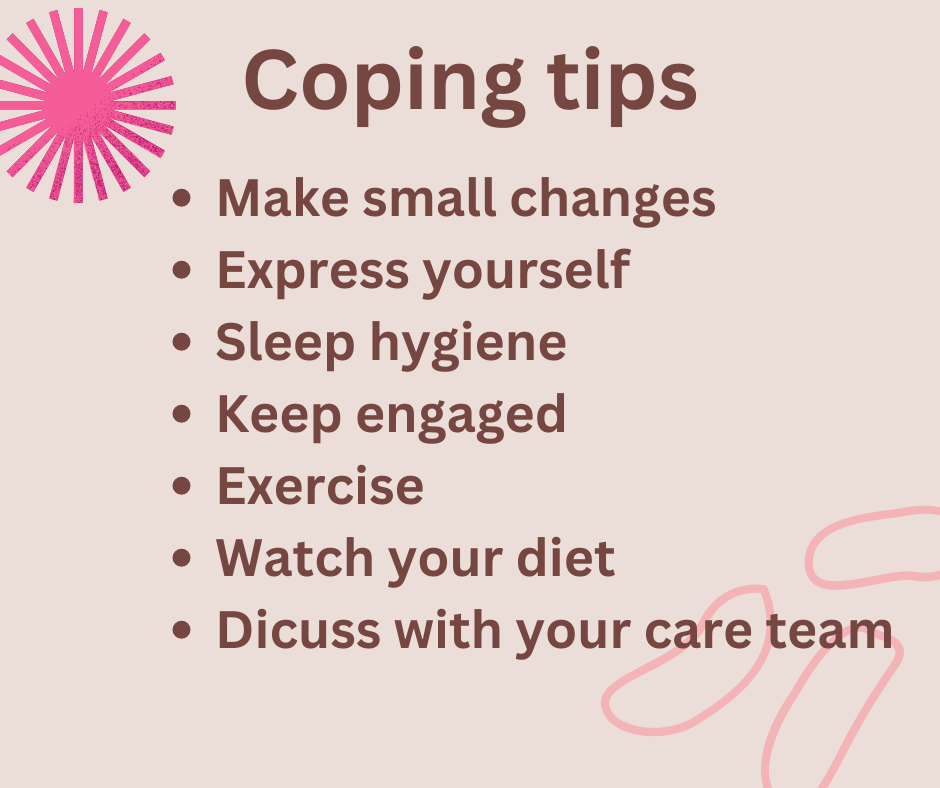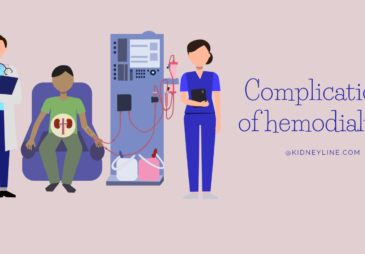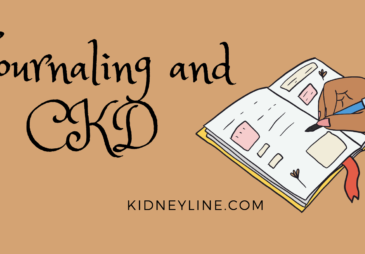Depression is common among those who have chronic kidney disease (CKD). To illustrate, one meta-analysis of 55,982 people reports that 3 in 10 people with CKD have depression. But some studies report that nearly 100% of patients experience depressive symptoms.
These figures are important because experts say depression can impact CKD treatment and outcome. What causes depression in people with CKD, and what can you do about it?
What is depression?
Depression is a mood disorder in which you persistently feel sad. Of course, everyone feels sad from time to time. But when it is persistent and associated with losing interest in things that typically give you pleasure, you may be experiencing depression.
Although genetics plays a role in developing depression, life events, including the diagnosis of CKD, can trigger a depressive episode.
Among those with CKD, females, older individuals, and those receiving dialysis are more vulnerable to depressive symptoms.
Triggers of depression when you have chronic kidney disease
When depressed, you experience a ton of negative emotions such as helplessness, sadness, and irritability. Unfortunately, CKD diagnosis and treatment can evoke these negative emotions in you.
You probably already had plans for your life that did not include frequent hospital visits and dialysis. So, it’s natural to feel sad, frustrated and helpless when diagnosed with CKD.
Moreover, the disease and its treatment are stressful. For example, people with CKD often experience insomnia (lack of sleep) and hypersomnia (extreme daytime sleepiness). If you have such sleep disturbances, it can affect your mood.
Other things that can make you feel blue are
- Frequent hospital visits, especially if you are undergoing dialysis
- The thought that CKD has no cure
- Financial stress
- Inability to work
- Persistent weakness and feelings of unwellness
- Lack of social support
- A sense of being a source of burden to loved ones
According to research, key triggers of depression in people with CKD are sleep disorders, lack of exercise routine, no religious beliefs, and end-stage diagnosis.
How do you cope with chronic kidney disease and depression
It’s important to cultivate the habit of eliminating negative thoughts and replacing them with more helpful ones. No matter the disease stage, focus on what you can do to improve your health. When you dwell on the feeling of hopelessness and helplessness, it impacts your outcome. It may even cause you to start defaulting on life-saving treatments. Below are some simple tips you can use.

Make simple changes
To deal with depression, you may want to make some changes in your life. Simple steps like surrounding yourself with things that make you feel better are helpful. Do you like flowers and plants? Why not have some house plants?
You can also look at your life and find positive things to be thankful for. This can help get your mind off thoughts that crush your spirit.
Find a channel to express yourself.
Expressing your thoughts releases the burden on your brain and helps you feel much more relaxed. Writing a diary/Journal is a fantastic kind of therapy for managing depression. By being honest about your feelings, thoughts, and worries in your writing, you can get relief from stress.
Pent-up emotions might be released through writing about your struggles with CKD and depressive feelings. Writing down your thoughts may also help you identify negative thoughts, which you can share with a therapist who will teach you techniques for dealing with these unhelpful thoughts.
Sleep hygiene
CKD impacts sleep. But you can practice some sleep hygiene tips to help you enjoy a more restful sleep. Try making your room comfortable for sleep and remove every distracting device. You can also use some sleep apps which may provide white noise, bedtime stories or soothing music to help lull you to sleep. Getting a massage or taking a warm bath may also help. Other suggestions by experts are
- Go to sleep at a designated time
- Use the room for sleep only
- Avoid exercise and caffeinated drinks in the evening
You may need to try different things to find what works for you. Although uremic toxins can make it difficult to fall asleep, these techniques are worth trying.
Keep yourself engaged.
When you are feeling depressed, there’s a tendency to isolate yourself. Instead, try keeping yourself engaged with an activity you enjoy. You can find a passion or interest to pursue. For example, do you want to write? Or perhaps you like to work with your hands. Or maybe you like to decorate. Having a goal can keep you motivated and take your mind off CKD for a bit.
Strive to maintain relationships with your family and friends. Although you may feel they do not understand what you’re going through, social interactions can help prevent you from spending too much time on negative thoughts.
Carefully choose whom to spend your time with. You don’t want to spend the day with someone who drains your energy and makes your mood tank. Instead, spend time with those who love and support you.
Sometimes you may feel you’re being a burden to them. But remember this, they love you and want to help as best as they can.
You can also join online communities and find comfort by interacting with others.
Exercise
Exercise can be challenging when you have CKD, because CKD makes you feel tired. But research has shown that exercise benefits those with CKD as it can slow disease progression. Exercise also helps with depression. Before you embark on an exercise regimen, you should discuss it with your care team.
It is important to select an exercise regimen that works for you. Walking is a simple yet effective exercise. Try going for walks in the mornings or evenings. You may start with a 10-minute walk and gradually work up to a 30-minute walk if you find it tolerable.
Other exercises to consider are cycling, swimming, hiking and dancing if you are up to it.
Watch your diet.
Toxin buildup in CKD may make you lose your appetite. So this may make it difficult to take in the calories you need to function optimally. Work with your doctor to help keep up with your food intake. You’ll need the energy from the food to keep your mood up.
Discuss with your doctor and care team
If you are experiencing depressive symptoms, sleep disturbances and fatigue, discuss this with your doctor. They can address some of those problems. Sometimes people do not tell their doctors about these issues because they feel their symptoms are a part of the disease. This should not be. Some of these symptoms have effective treatment.
For example, fatigue may be caused by low red blood cell levels, which may require the use of hormones and iron supplements that help you build blood. If left untreated, low blood levels and fatigue can lead to depressive symptoms.
Your doctor could also refer you to a social worker and therapist who can provide you with crucial coping techniques. Your therapist may recommend cognitive behavioral therapy or drugs depending on findings during your evaluation.
Bottom line
Depression is pretty common among those who have CKD. Unaddressed depressive symptoms can affect your kidney treatment. Employing simple lifestyle changes and working with your care team can help you cope better with your symptoms.




